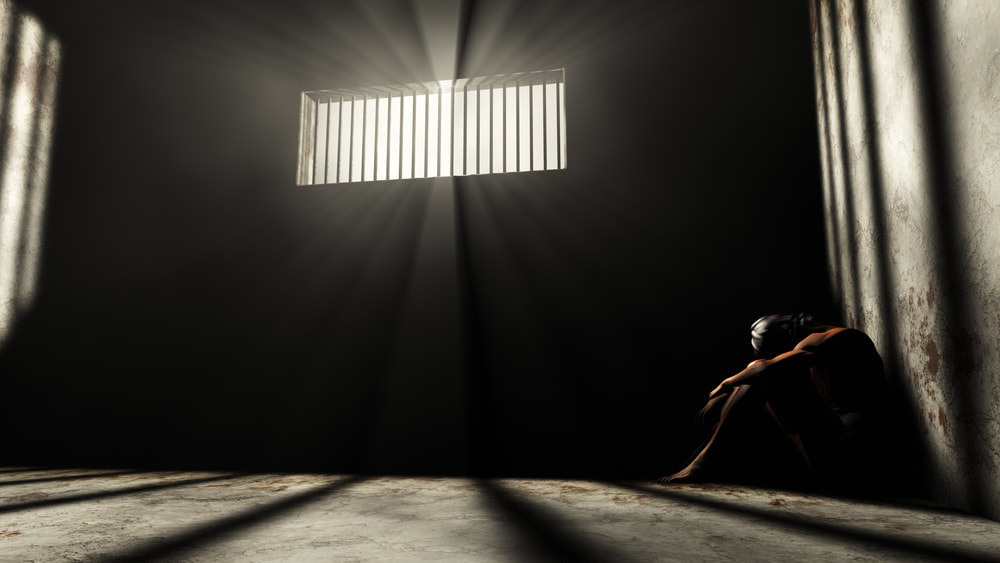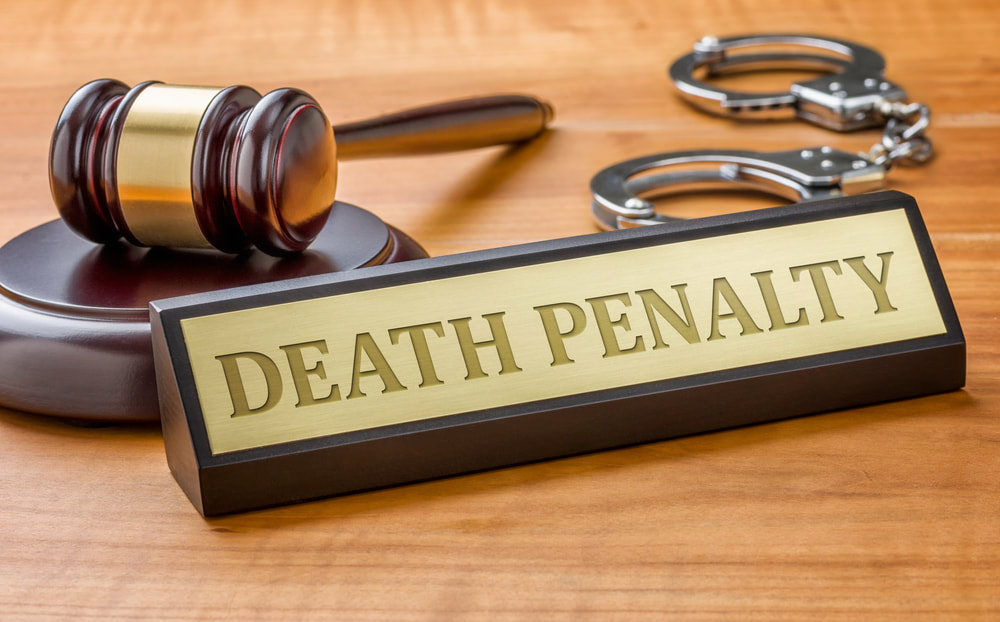|
Solitary confinement is routinely used in prisons as a punishment for disciplinary violations and, as a result, a disproportionate number of mentally ill inmates are placed in solitary. According to a Department of Justice report, the Federal Bureau of Prisons uses solitary confinement for mentally ill inmates at a high rate and that these inmates don’t get the treatment they need. Inmates with mental illness tend to be held in isolation longer than other inmates in federal prison. The problems prevail in state prisons as well. In South Carolinait was found that inmates who suffered from a serious mental illness were more than twice as likely to be placed in solitary confinement.
The symptoms of mental illness are often seen as reasons to place an inmate in solitary. Suicidal threats and threats to other inmates are the most common reasons for placement in solitary confinement. Currently more than 4,000 inmateswith serious mental illness are in isolation. This number is likely on the low side given that many inmates with mental illness go undiagnosed and untreated. Inmates in isolation are held for 22 hours a day, often for 15 days or more. Effects of Solitary Confinement It is well known that the effects of solitary confinement can have a detrimental, and even deadly effect on anyone, especially inmates with mental illness. In a 2014 study, it was found that New York City prisoners placed in solitary confinement were 7 times more likely to engage in self-harm or suicide. While some inmates may be able to employ coping mechanisms while in isolation, those with mental illness often lack those skills and have more trouble adapting. In addition, prison rules for isolated prisoners sometimes means that inmates with mental illness don’t receive the mental health services they require. The majority of inmates who spend extensive time in solitary confinement experience some symptoms of declining mental health, even those who were mentally healthy to begin with. This fact highlights the destructive nature of solitary confinement on mental health. Without treatment, solitary confinement only exacerbates the symptoms of mental illness. If you or a loved one with a mental disability has been arrested or convicted of a crime, you need an experienced criminal defense attorney on your side. Elizabeth Kelley specializes in representing individuals with mental illnesses and intellectual and developmental disabilities. To schedule a consultation call (509) 991-7058.
0 Comments
Due to a growing population of mentally ill offenders, and a high rate of low-level crimes, the city of Houston opened the new Judge Ed Emmett Mental Health Diversion Center in October. The Center, which opened in midtown several years ago, contains 29 beds meant to house non-violent offenders with mental illness. The aim of the facility is to provide an alternative to jail for these offenders by allowing them to seek treatment instead. The Center houses people for anywhere from a few hours to a few days.
Diversion Programs Throughout the country there has been a trend to implement diversion programs in cases where offenders with mental illness commit low-level crimes. The goal is to prevent overcrowding in jails and provide appropriate treatment to prevent recidivism. Prison and jail tend to exacerbate the symptoms of mental illness and diversion programs can go a long way in curbing the problem. Houston recognized that county jail was not always the appropriate place for offenders with mental illness. Some of the 9,000 individuals in lock-up had returned 70-80 times for offenses such as loitering and trespassing. Many of these offenders had a mental disability. While the program currently focuses on those offenders who have committed Class B misdemeanors, there is hope that it will expand to cover other offenses. The Center was built as part of the Harris County Mental Health Jail Diversion Program. This program helped connect those with severe mental illness who were already behind bars with mental health treatment and other services. While a 2016 study found that the program only improved outcomes for a small fraction of offenders, authorities are hopeful that the program will improve on those results. The program is still a work in progress. In recent years, the county also began programs to keep offenders with mental illness out of solitary confinement while in prison or jail by offering them therapy instead. This is an important step since studies show that solitary confinement tends to exacerbate the symptoms of mental illness and that those with mental illness are more likely to be placed in isolation. If you or a loved one with a mental disability has been arrested or convicted of a crime, you need an experienced criminal defense attorney on your side. Elizabeth Kelley specializes in representing individuals with mental illnesses and intellectual and developmental disabilities. To schedule a consultation call (509) 991-7058.
In September 2018, the Alabama Supreme Court voted 5-4 to overturn the death sentence of a man convicted in a 2009 robbery and shooting that led to the death of a man. The ruling came after the United States Supreme Court ordered Alabama courts to reconsider the death sentence for Anthony Lane in 2015, stating that states cannot execute individuals with intellectual and developmental disabilities. The Alabama attorney general’s office conceded that the trial court should not have sentenced Lane to death and joined in the defense’s motion.
Atkins v. Virginia In the case of Atkins v. Virginia, the U.S. Supreme Court held that the execution of individuals with intellectual disabilities violated the Eighth Amendment ban on cruel and unusual punishment. The Court stated that the Eighth Amendment should be read in light on the “evolving standards of decency that mark the progress of a mature society.” The Court cited the fact that a number of states had begun to outlaw the execution of the intellectually disabled and saw a consistency in the direction of change on the issue. The Court left it to the discretion of individual states to set guidelines in determining whether an individual had an intellectual disability that would prevent their execution. Hall v. Florida In Hall v. Florida, the U.S. Supreme Court narrowed the standard states may use in determining whether an individual sentenced to death has an intellectual disability that would prevent execution. Florida had established a bright-line rule that anyone with an IQ over 70 was eligible for execution. The Court found that states had to go beyond IQ measurements in determining eligibility and stated that a rigid rule could lead to the execution of individuals with mental disabilities. A defendant must be able to introduce evidence in addition to IQ scores that show things such as the inability to learn basic skills and adapt to changes. Anthony Lane In the Alabama case, Lane had an IQ of 70 and it was undisputed that his intellectual functioning was significantly below average. The dispute in the lower courts centered around whether Lane had the requisite deficits in adaptive skills that would render him intellectually disabled. A medical expert determined that Lane lacked the fundamental social and practical skills that would make him eligible for execution. If you or a loved one with a mental disability has been arrested or convicted of a crime, you need an experienced criminal defense attorney on your side. Elizabeth Kelley specializes in representing individuals with mental illnesses and intellectual and developmental disabilities. To schedule a consultation call (509) 991-7058.
According to data from the Bureau of Justice Statistics, from 2011 to 2012 over 40% of jail inmates had a mental illness diagnosis. Of those, only about a third were being treated for the illness. Many of these individuals can be found in county jails across the country. As the justice system continues to criminalize those with mental illness, it places a significant burden on the county jails that house them.
Unique Challenges Unlike prisons that house inmates that have been convicted and sentenced for a crime, county jails are responsible for a mix of different types of inmates. Some inmates are awaiting trial while others are serving relatively short sentences. This can make it difficult to mandate programs for individuals who have yet to be convicted. Many county jails are also overcrowded and face budget shortfalls. The facilities simply do not have the resources to handle a population of inmates with mental illness. Mental Health Screenings County jails are on the front lines of the mental health crisis. They are often their communities’ largest mental health facility. Some jails are attempting to address the problem by increasing screening for mental illness during the intake of an inmate or when an issue arises. Once an inmate is identified as potentially having a mental disability, they are then referred to treatment from the community once they are released. Inmates are sometimes assigned caseworkers while in jail who can help them connect with treatment and navigate their release. The hope is that treatment will prevent the individual from returning to jail and help them integrate into the community. Problems Continue The reality of the situation is that many county jails are ill-equipped to handle inmates with mental illness and that some are unwilling to seek out a solution. Diversion programs that would prevent mentally ill individuals from even entering jail in the first place would go a long way toward relieving the issue. Increased funding for mental health treatment across the board could lead to individuals being identified as mentally ill before they even become involved with the criminal justice system. If you or a loved one with a mental disability has been arrested or convicted of a crime, you need an experienced criminal defense attorney on your side. Elizabeth Kelley specializes in representing individuals with mental illnesses and intellectual and developmental disabilities. To schedule a consultation call (509) 991-7058. |
Details
Archives
March 2024
Categories |




 RSS Feed
RSS Feed